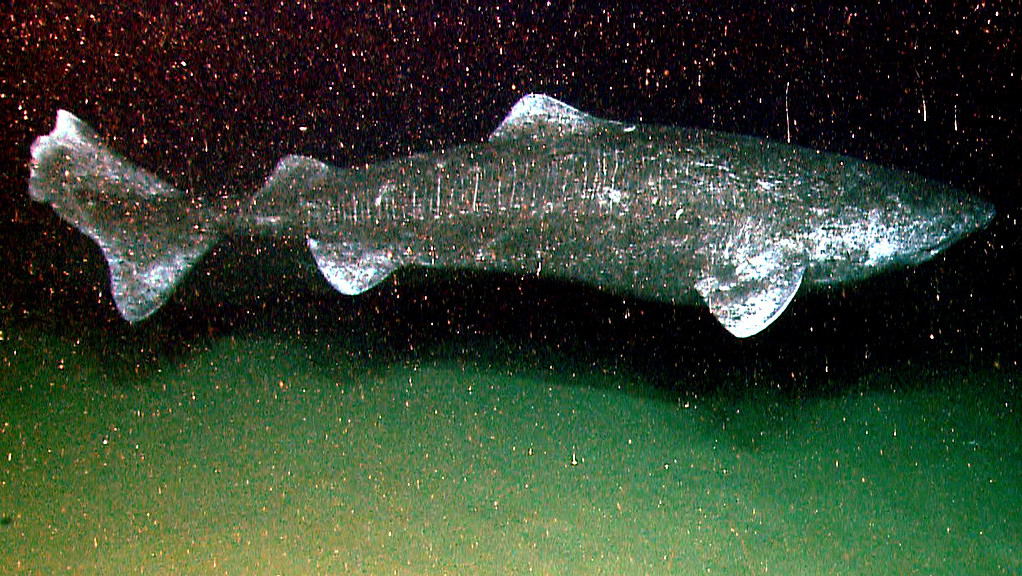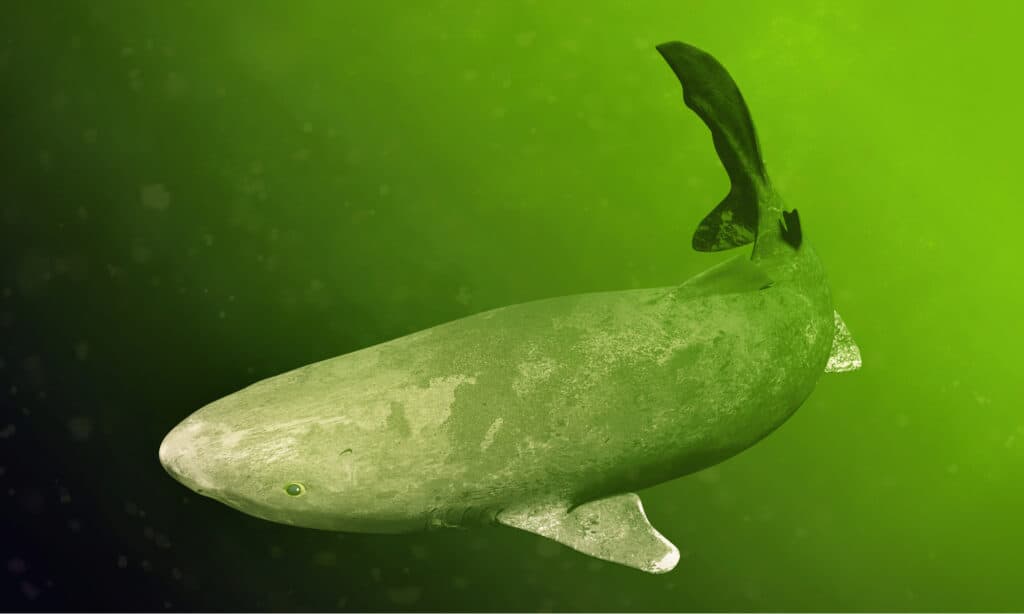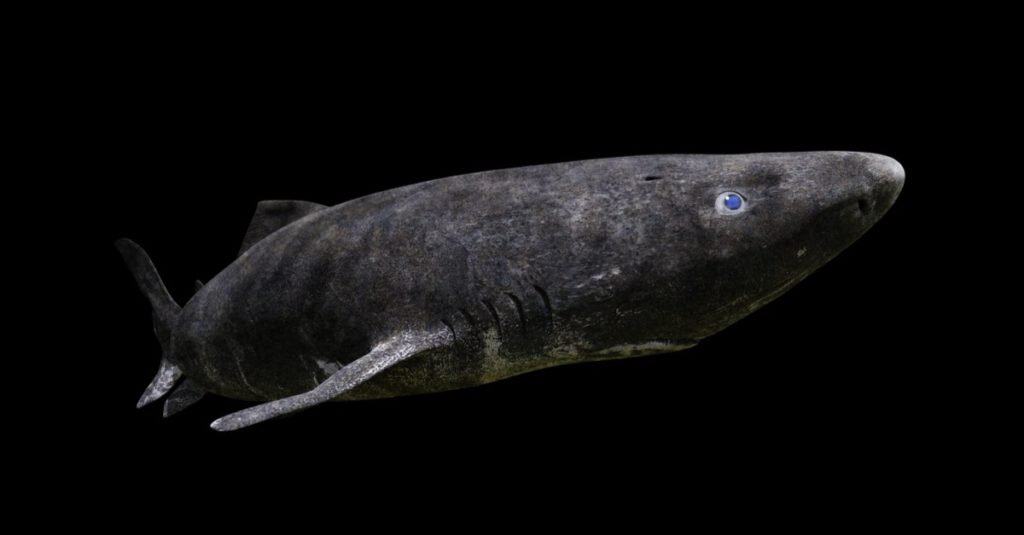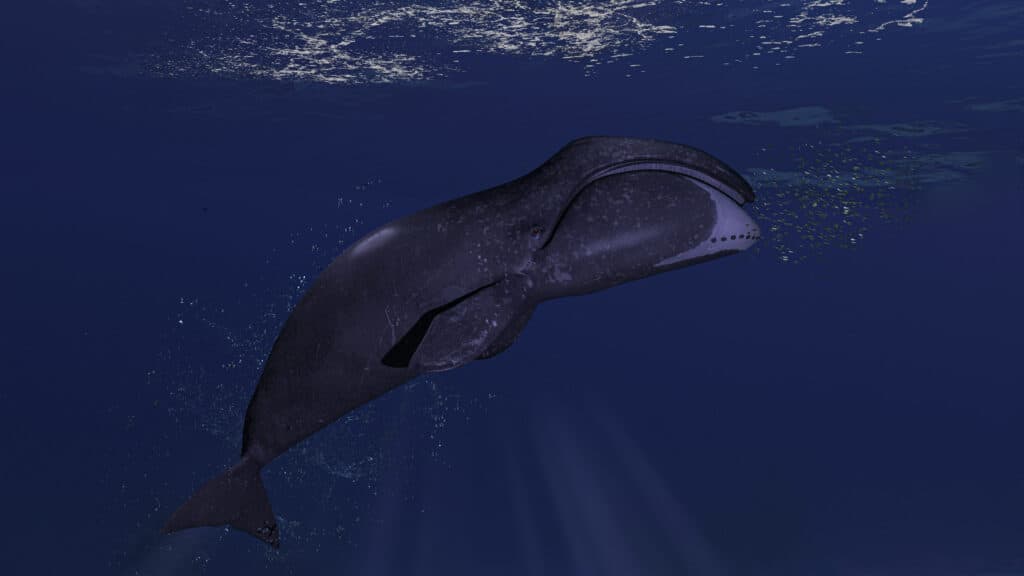The oceans of the world are filled with marvelous creatures. This includes the Greenland shark, which has the longest lifespan of all known vertebrates. Below, learn exactly how long Greenland sharks live. Plus, learn how they live so long.
Ready to learn more? Let’s dive in!
Species Summary: Greenland Sharks
Before learning more about the lifespan of this species, you may be interested in learning more about what the Greenland shark is. After all, thanks to its clandestine lifestyle, there isn’t a large amount of information available about these interesting sharks.
The Greenland shark (Somniosus microcephalus) is also known as the gurry shark or grey shark. Its Kalaallisut name is eqalussuaq. These sharks inhabit the frosty depths of the Arctic Ocean and the North Atlantic Ocean. They have been recorded living in waters up to 7,200 feet deep, where the temperature can reach as low as around 28 degrees Fahrenheit. Although they may be seen at the surface, such an occurrence is rare.
Because they live at such extreme depths, the Greenland shark has a high concentration of a chemical known as trimethylamine N-oxide in its flesh. This causes their meat to be toxic to consume. However, in Iceland, the meat is treated to reduce its toxicity, allowing it to become a local delicacy.
Along with being the longest-living vertebrae, the Greenland shark is also among the largest living shark species. Adults can grow to be up to around 23 feet long, and they can weigh over 3,000 pounds.

Due to their habitat and nature, not much is known about the
Greenland shark
.
©NOAA Okeanos Explorer Program, Public domain – Original / License
How Long Do Greenland Sharks Live?
Just how old are Greenland sharks? Old enough that scientists are not exactly sure how old they can grow to be.
In order to properly understand how old Greenland sharks are, researchers took eye tissue samples from 28 different individuals. Then, they performed radiocarbon dating to best understand the ages of adult Greenland sharks. This method isn’t always fool-proof, and, as a result, there is some variation.
However, even with this variation in mind, at its youngest, the oldest known Greenland shark was 272 years old. At its oldest, it could be as old as 512 years old. This means that this specific individual could have been born between 1501 and 1744!

The oldest Greenland shark is suspected to be between 272 and 512 years old.
©Dotted Yeti/Shutterstock.com
How Are Shark Ages Determined?
After learning that scientists have been unable to nail down a single age for the longest-living Greenland shark, you may be a bit confused. After all, scientists are usually able to provide a fairly precise age for animals, not one that may vary by over a hundred years.
Believe it or not, there’s actually a reason for this. For other species of sharks, scientists can count the rings that appear on the shark’s fin spine or vertebrate. Much like the rings on a tree, these unique markings help keep track of the shark’s age. However, Greenland sharks lack this feature. As a result, scientists had to get creative when determining how old different Greenland sharks are.
Above, you learned that scientists determined the age of Greenland sharks by eye tissue. This is because the eye of the Greenland shark contains an interesting protein. This protein is present in the eye at birth, and it doesn’t degrade with age. As a result, even at 200 years old, this protein can be observed in the shark’s tissue. Because of this, scientists were able to carbon-date the age of the protein for the age of the shark, much like one would do with a fossil.
How Do Greenland Sharks Live So Long?
Scientists have been unable to establish a single reason for the Greenland sharks’ long lifespan.
One of the most well-accepted theories on the Greenland shark’s ability to live for literal centuries is because of their slow metabolism. This metabolism developed as a way for the shark to adapt to the deep icy waters they call home. Most often, they move less than one mile per hour, and they don’t reach sexual maturity until they reach around 100 years of age. This slow metabolism may also result in slow growth, which can lead to sharks that are centuries old.

Greenland sharks aren’t adults until they’re around 150 years old, and they keep growing their whole lives at a rate of one centimeter a year.
©Dotted Yeti/Shutterstock.com
Do Other Animals Live as Long as the Greenland Shark?
Although the Greenland shark is the suspected longest-living vertebrate, it is not the longest-living animal. There are also other vertebrates that come close to the lifespan of the Greenland shark.
Take the immortal jellyfish, for example. These unique sea organisms are able to “go back in time” whenever they are stressed or threatened. They go through several different life stages, and they have the ability to revert to any earlier stage, thus living essentially forever. Of course, this process grinds to a halt if the immortal jellyfish falls to predation.
Ocean quahogs are a type of clam that can grow to over 500 years old. Bowhead whales can live up to 200 years, showcasing an impressive lifespan close to that of the Greenland shark.

Bowhead whales, ocean quahogs, and the immortal
jellyfish
are other examples of animals that can live for hundreds of years.
©iStock.com/bbevren
The photo featured at the top of this post is © Dotted Yeti/Shutterstock.com
Thank you for reading! Have some feedback for us? Contact the AZ Animals editorial team.







